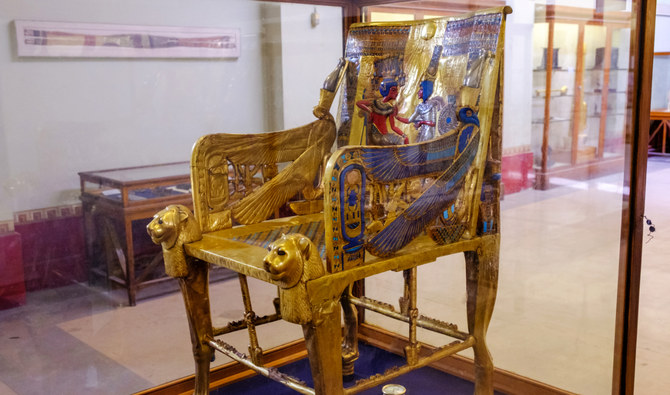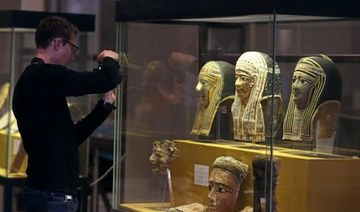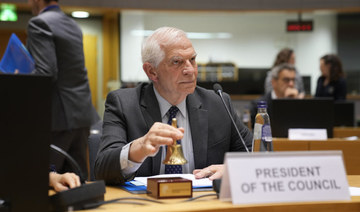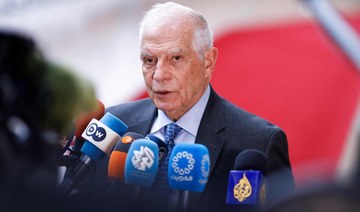CHICAGO: US State Department officials said on Thursday they have signed a new and tougher Memorandum of Understanding with Egypt’s government to protect Egyptian cultural artifacts from looting, theft and trafficking.
During a briefing attended by Arab News, the officials said the MoU replaces and strengthens a 2016 agreement between the countries, which was the first of its kind in the region.
Artifacts taken from Egyptian antiquity sites are trafficked through Europe and the Gulf, and there was a surge in cases in the aftermath of protests during the Egyptian Revolution in 2011. The US is a major market for such stolen items, according to the State Department.
“For the looting, theft and trafficking of Egyptian cultural property it continues to be an issue,” a State Department official said in response to a question from Arab News. “We certainly saw a large uptick in 2011, when there were many disruptions in the country. Thankfully we see a lower level (now) than in 2011 but the problem remains.
“In terms of trafficking routes, they remain the same. We see a lot of movement through Europe and then on to the United States. The United States remains the largest art market, in general, in the world, so we continue to be a destination for this type of material. We also see trafficking through the Gulf States areas, which is also a concern.”
The officials said damage caused to archaeological sites, places of worship and museums around the time of the 2011 protests was extensive, and cultural-heritage artifacts were then under constant threat of plunder.
A number of valuable objects were subsequently recovered from museums and art collectors in the US. In 2019, for example, the Justice Department ordered the Metropolitan Museum of Art in New York, known as the Met, to return a prized item from its collection of Egyptian antiquities after confirming it had been stolen.
The looted item, a gilded coffin that once held the remains of a high-ranking priest named Nedjemankh, is estimated to be about 2,100 years old. It was returned to Egypt following a repatriation ceremony in New York attended by Egyptian Foreign Minister Sameh Hassan Shoukry.
The coffin, crafted in Egypt between 150 and 50 B.C. and valued at about $4 million, was stolen from Egypt’s Minya region after the 2011 protests and smuggled out of the country, according to a State Department announcement on Oct. 23, 2019.
The Met bought it in 2017. According to the State Department’s Bureau of Educational and Cultural Affairs, New York prosecutors said the dealer provided unsuspecting museum officials with forged documents that made the sale appear legitimate.
Once presented with evidence proving it had been stolen, the Met cooperated with the district attorney’s office and returned the coffin, which is now on public display in Egypt.
The new MoU expands the categories of protected objects and artifacts to including “ethnological materials.” The agreement will be policed by authorities that includes a crime task force staffed by agents from the Department of Homeland Security and the FBI, officials said. The US has similar agreements with 20 other countries including Libya, Algeria, Jordan and Morocco they added.
The new MoU also includes a legal process for Egyptian authorities to loan artifacts to US museums and special, temporary exhibitions.



























